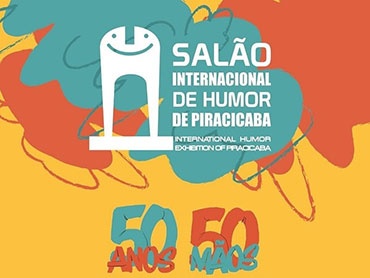
A View of Gaza and Palestine Through Comics
Claude Lanzmann, the director of Shoah (1985), the immense nine-hour-long documentary about the Holocaust, believed that the only way to address the horror and barbarism was through the direct testimony of the victims. According to this view, fiction was superfluous in transmitting to future generations the memory of something that should never be repeated, especially if it took the form of a medium like comics, so little regarded at the time, confined to mere adolescent entertainment. Contrary to this position, Art Spiegelman won the 1992 Pulitzer Prize for his canonical comic work on the subject: Maus.
Although there has been a notable evolution since then, there remains considerable reluctance among many readers to take comics seriously as a valid mode of expression for telling stories of a certain significance. Without disparaging those who didn't understand the creation of a National Comics Award to honor someone for "drawing stick figures," in most cases, what happens is that there is still a great lack of awareness about what can be achieved through comics, or graphic novels, or whatever you want to call them. But the truth is that today there are very high-quality comics that deal with all kinds of topics, no matter how dramatic, and a good example of this is the Palestinian-Israeli conflict, of which we will look at some examples.
Alfonso Zapico brings us closer to the origins of the conflict in Café Budapest (2008), recounting, against the historical backdrop of the creation of the State of Israel, the story of a Central European Jew who, along with his mother, a survivor of Auschwitz, emigrates to Jerusalem to take over a café where Jews, Arabs, and Christians coexist, more or less in harmony, until everything explodes on May 18, 1948, with the approval by the newly created UN of the partition of Palestine.
Another way to understand the difficult coexistence in that part of the world is offered by Canadian Guy Delisle in Chronicles of Jerusalem, winner of the Best Album Award at the 2012 Angoulême Festival. The author accompanied his wife, a member of Doctors Without Borders, between August 2008 and July 2009, and the culture shock caused by the intransigence and lack of communication, not only among Christians, Muslims, and Jews, but also among the most fundamentalist and ultra-Orthodox factions of each of these religions, he summed up with a surreal and brilliant "Thank you, my God, for making me an atheist."
In Waltz with Bashir (2009), Aris Folman and David Polonsky explore Aris's own memory, unable to recall anything of his participation as a soldier in the invasion of southern Lebanon in 1982, and of the Israeli army's failure to prevent the massacre committed by Maronite Christians in the Palestinian refugee camps of Sabra and Shatila, killing hundreds of Palestinians, including women, children, and the elderly. One of the plates in this work is a perfect example of the narrative power of sequential art to wordlessly convey the horror of war. In the first panels, a red vehicle approaches a group of Israeli soldiers resting in front of a burger and kills them. In the following panels, another group of Israeli soldiers fires indiscriminately at the vehicle and the buildings behind it. At the end, the targeted vehicle emerges unharmed amid the smoke and rubble of the buildings.
I have left for last the author who has worked most on Gaza, the Maltese Joe Sacco. Palestine, winner of the 1996 American Book Award, launched him to fame for his account of the intifada in the Gaza Strip during December 1991 and January 1992. However, I prefer Footnotes from Gaza, which is more narratively complex, in which he recounts his return visit to Gaza in 2002 to investigate two massacres of civilians in the Palestinian cities of Khan Younis and Rafah that occurred in 1956, in the context of the Suez Canal crisis.
If the two previous works can be considered in journalistic terms as great news reports, The Gaza War (2023) would be the equivalent of an editorial column in which Sacco forcefully dismantles the argument of those who temporize with Israel for being the only democracy in the region, with the historical reference of how ancient Athens understood democracy: in the 5th century BC, after the island-state of Milos rejected the Athenian ultimatum to ally with them, Athens killed all its men, sold the rest into slavery and sent settlers to occupy the houses on the island that had been left empty.
Source

- November 25, 2025
Aesthetics Imperfections | Slanted Publishers

- November 25, 2025
Creating Art with Alcohol Ink

- November 25, 2025
Graffiti as a tool for social activism in Latin America

- November 25, 2025
Street art en São Paulo, Bogotá y Ciudad de México


- November 25, 2025
Marcelo Valle - Brazil

- November 24, 2025
Slanted Yearbook of Lettering: No. 2

- November 24, 2025
Make love not war


- November 25, 2025
Graffiti as a tool for social activism …

- November 25, 2025
Street art en São Paulo, Bogotá y Ciuda…

- November 23, 2025
Contemporary Sculpture in South America

- November 22, 2025
Graffiti as a Tool for Social Activism …

- November 22, 2025
Latin American Urban Artists Who Are Se…

- November 20, 2025
The Evolution of Modernism in Latin Ame…

- November 19, 2025
Colombia: Muralism as a Social Voice an…

- November 19, 2025
Brazil: The Creative Power of Urban Art

- November 18, 2025
Visual Arts: History, Languages, and Cu…

- November 18, 2025
Indigenous Art: Characteristics and Typ…

- November 17, 2025
What are the types of AI?

- November 16, 2025
The Importance of Aesthetic Experience …

- November 16, 2025
Art as a Mirror of Culture: Between Tra…

- November 15, 2025
The Influence of Artificial Intelligenc…

- November 15, 2025
The Evolution of Digital Art in the 21s…

- November 13, 2025
Urban Art in Latin America: A Visual Re…

- November 13, 2025
Urban Art in Latin America

- November 12, 2025
The Art of Photography: Capturing the E…

- November 11, 2025
The Power of Visual Arts

- November 09, 2025
Contemporary Art and Its Diverse Forms …

- August 29, 2023
The history of Bolivian art

- February 19, 2024
Analysis and meaning of Van Gogh's Star…

- January 28, 2024
Culture and Art in Argentina

- September 25, 2023
What is the importance of art in human …

- September 23, 2023
What is paint?

- August 10, 2023
14 questions and answers about the art …

- August 23, 2023
The 11 types of art and their meanings

- August 30, 2023
First artistic manifestations

- September 23, 2023
Painting characteristics

- January 12, 2024
10 most beautiful statues and sculpture…

- September 23, 2023
History of painting

- March 26, 2024
The importance of technology in art1

- March 26, 2024
Cultural identity and its impact on art…

- August 16, 2023
The 15 greatest painters in art history

- April 06, 2024
History of visual arts in Ecuador

- April 02, 2024
History visual arts in Brazil

- October 18, 2023
History of sculpture

- July 13, 2024
The impact of artificial intelligence o…

- August 13, 2023
9 Latino painters and their great contr…

- April 07, 2024
Graffiti in Latin American culture

- February 19, 2024
Analysis and meaning of Van Gogh's Star…

- August 13, 2023
9 Latino painters and their great contr…

- August 23, 2023
The 11 types of art and their meanings

- August 10, 2023
14 questions and answers about the art …

- August 29, 2023
The history of Bolivian art

- August 27, 2023
15 main works of Van Gogh

- January 28, 2024
Culture and Art in Argentina

- November 06, 2023
5 Latin American artists and their works

- September 23, 2023
Painting characteristics

- September 23, 2023
What is paint?

- September 25, 2023
What is the importance of art in human …

- August 30, 2023
First artistic manifestations

- March 26, 2024
Cultural identity and its impact on art…

- December 18, 2023
10 iconic works by Oscar Niemeyer, geni…

- January 20, 2024
What is the relationship between art an…

- January 12, 2024
10 most beautiful statues and sculpture…

- October 30, 2023
Characteristics of Contemporary Art

- August 24, 2023
The most famous image of Ernesto "Che" …

- August 22, 2023
What are Plastic Arts?

- May 26, 2024


